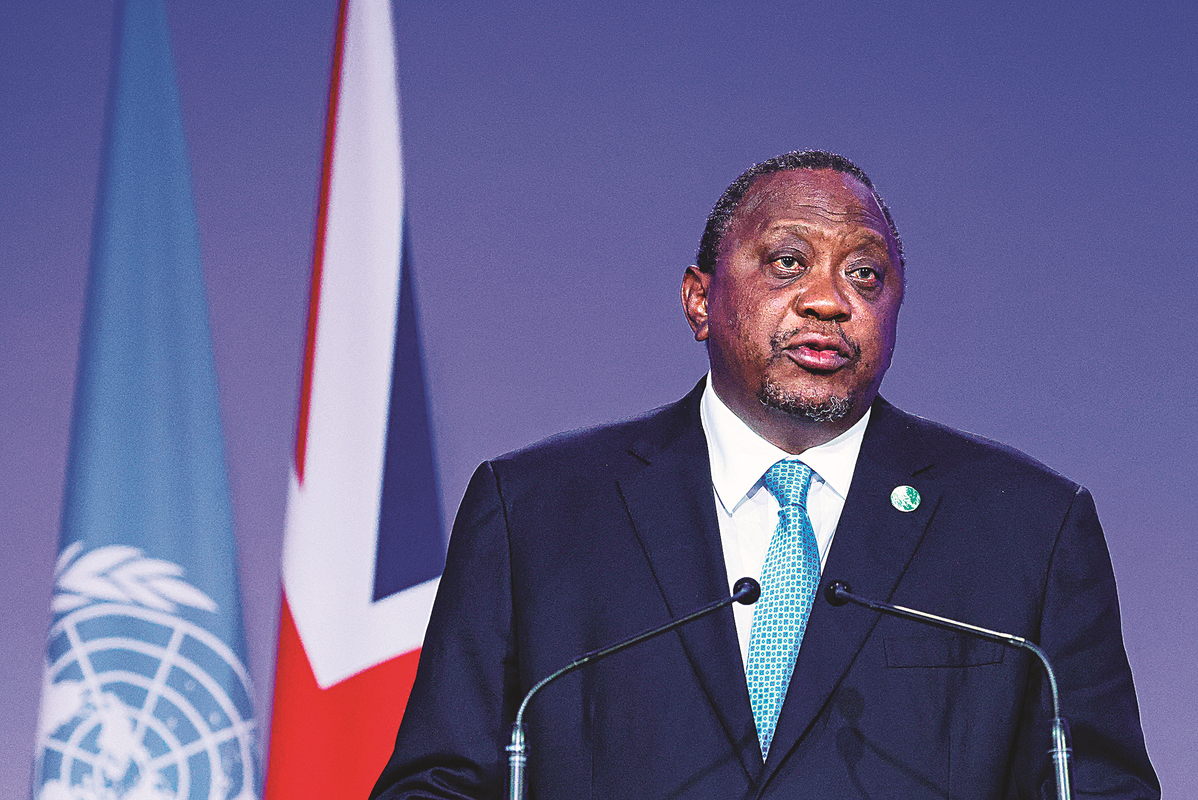Africa battles to restore carbon sinks
By EDITH MUTETHYA in Nairobi, Kenya | CHINA DAILY | Updated: 2021-11-06 08:07

Protecting Africa's carbon-rich landscapes will not only mitigate climate change but also help the continent access conservation financing, agreed delegates at a side event of the COP 26 climate summit.
Uhuru Kenyatta, the president of Kenya and co-host of the event, said restoring Africa's carbon sinks would help the continent generate jobs apart from ending illegal wildlife trade.
"Restoring and protecting these carbon sinks can also help create hundreds of thousands of critical green jobs, drive enterprises away from destructive forms of land use, help us tackle poverty, combat illegal wildlife trade and also prevent future pandemics," he said.
Though Africa contributes less than 4 percent of global emissions, Kenyatta said it bears the brunt of climate change, consequently increasing conflicts and insecurity in the region.
"Our savannas, mangroves and swamps, our coral reefs and our marine reserves are the carbon sinks of the world. Indeed, they are the basis of the very oxygen that we breathe every day," he said. "Yet, that great public benefit that the African ecosystem provides to the world has not yet been fully acknowledged."
Kenyatta appreciated that investors, consumers and shareholders are beginning to demand companies start the process of decarbonizing their activities and moving toward a carbon neutral world.
The Giants Club
He said Kenya plans to work with African countries from the Giants Club conservation group to raise investment resources in the continent's climate change programs. The Giants Club is a group of African nations, including Kenya, Uganda and Mozambique, partnering in wildlife conservation activities.
Evgeny Lebedev, founder of Lebedev Holdings which co-hosted the event, said the rainforest in the Congo River Basin is one of the strongest remaining defenses against climate change.
"Unlike other large tropical rainforests, Congo remains a strong net carbon sink," he said. "Currently, it removes 4 percent of the planet's annual carbon emissions. These sprawling landscapes are nature's very own carbon removal devices, absorbing it and sequestering it away."
Max Graham, founder and CEO of conservation organization Space for Giants, said the $100 billion that developed countries promised to developing countries sounds like a lot of money, but it is not when compared to the things that people are spending money on.
"The world spends $623 billion every year on beer. America alone spends $53 billion annually on pets. We collectively spend $90 billion on our hair, $57 billion on ice-cream and over $100 billion on coffee," he said. "If we collectively spend hundreds of billions of dollars on items that are not essential for our survival, it seems completely inexplicable that we are not paying for the price of something we need for our children's future."
Akinwumi Adesina, president of the African Development Bank, said while carbon offset is important for reaching net-zero, the most critical thing is proper pricing of carbon.
























